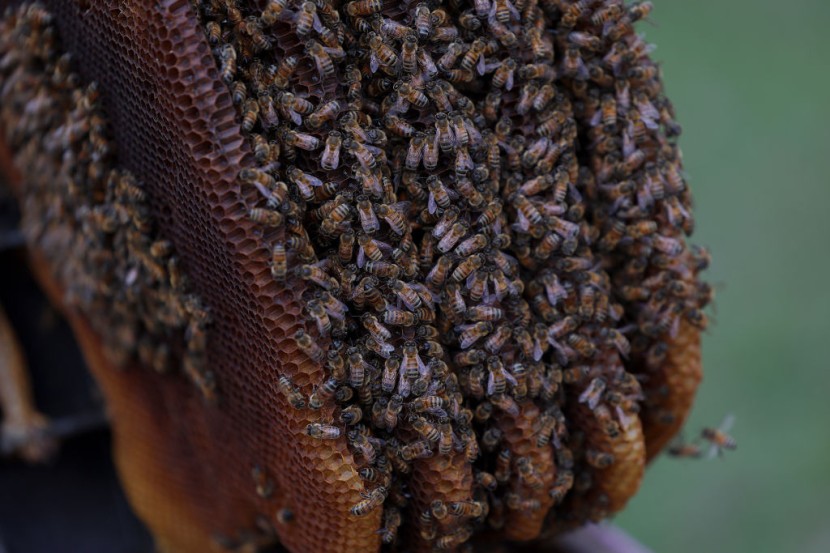
A new study found that bumblebees can teach each other how to solve puzzles by letting some colony members observe their brethren.
The bees seemingly pick up new "trends" in their behavior by watching other bees and learning from their actions. This is something that the researchers believe could be one form of conduct that can rapidly spread throughout the whole colony, even when a different version is found.
Bumblebees Teach Each Other
Queen Mary University in London led the research that was published in PLOS Biology and provided significant evidence that bumblebee behavior spread is driven by social learning. In the study, it was observed how the bumblebees forage for their food.
The researchers conducted various experiments to establish this conclusion. They designed a two-option puzzle box that could be opened by either pushing a red tab clockwise or a blue tab counter-clockwise to reveal a 50% sucrose solution for the bumblebees, as per Phys.org.
The study had "demonstrator" bees trained to either use the red or blue tabs and let "observer" bees watch the process. When it came time for the latter to face the puzzle, they could overwhelmingly replicate the actions they watched from their colleagues, even after finding an alternative option.
The preference for the demonstrated behavior was maintained by whole colonies of bumblebees, with a mean of 98.6% of box openings being made using the taught method. The control group also illustrated the importance of social learning to acquire puzzle box solutions despite lacking demonstrators.
In this particular group, some bumblebees could open the puzzle boxes but did so a fewer number of times compared to those who watched the solution beforehand. In a day, the median number of boxes the bees opened with a demonstrator opened was 28, while the control colony could only get one opened.
Read Also : COVID-19 Origin: Lab Leak Theory
Capabilities for Culture
The researchers wrote that the results provide strong evidence that social learning is a crucial factor in transmitting novel foraging behaviors among bumblebees. There was also one particular bee that the researchers observed that opened the box 216 times by itself, according to BigThink.
Scientists who have studied social learning on other animals argue that the ability forms the basis of culture. This is broadly defined as the sum of a population's "behavioral traditions." However, the study's authors said that it was unlikely for bumblebees to have a rudimentary culture.
They argued that the lifespan of individual B terrestris workers was relatively short, and colonies would collapse before the winter season. They noted that if every worker survives past the decline of annual colonies, any foraging traditions would be recovered with them.
Alice Dorothy Bridges, who was involved in the study, said that the results they found echo previously found where scientists used similar experiments in primates and birds. These were used to demonstrate the capacity of such animals for culture, said NeuroScienceNews.
Related Article: Previously Unknown Ice Age Europeans Unearthed in Genetic Study
© 2026 HNGN, All rights reserved. Do not reproduce without permission.







